What Roof Types Work Best for Solar Panels in Maine?
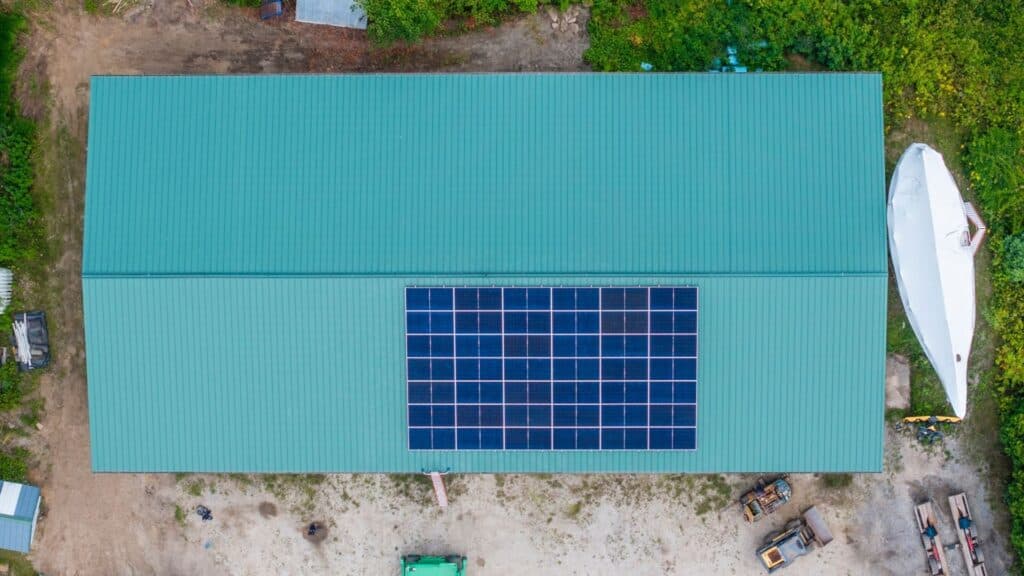
Many Maine homeowners and businesses are installing solar panels to cut rising electricity costs and gain energy independence. One of the most common questions we hear is: “Can solar panels be installed on my type of roof?”
The good news is that solar panels can be installed on most Maine roofs—but the installation method, cost, and hardware will depend on your roof’s material and age. This guide explains which roof types work best for solar, what to consider before installing, and alternatives if your roof isn’t suitable.
Why Install Solar Panels on Your Roof in Maine?
Roofs are the most common installation location for solar electric systems—and for good reason.
- Sun exposure: The higher elevation of your roof typically gives panels the best access to sunlight, maximizing energy production.
- No extra structures needed: Because the panels are supported by the building itself, you don’t need to erect a separate structure like you would with a ground-mounted array.
- Flexible design: Arrays can be split into sections to work around roof features such as skylights, vents, or pipes.
- Outbuilding options: Panels can also be installed on barns, sheds, garages, or carports, giving you options beyond your home’s main roof.
- Aesthetics & space-saving: Rooftop systems blend into the home and preserve yard or ground space for other uses.
For most homeowners, this makes the roof the most practical and cost-effective location for solar.
What Are The Different Roof Types, And Which Ones Do You Install Solar Panels On?
In Maine, the most common roof types we see are asphalt shingles, standing seam metal, exposed fastener (corrugated) metal, and flat rubber or concrete roofs. Metal shingle roofs also exist, but they are less common.
Below, we’ll walk through each roof type, how our team secures solar panels to them, and which ones our team installs on.
Asphalt Shingle Roofs
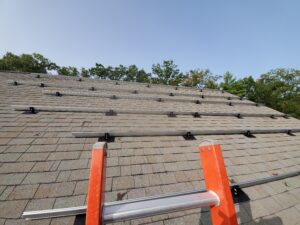
Asphalt roofing shingles (also called architectural or three-tab shingles) are the most common roofing material in Maine. A typical three-tab asphalt roof lasts about 20 years, while architectural shingles can be warranted for 30 to 50 years.
Installation: Installing solar panels on asphalt shingles is a straightforward process. Solar panels are secured to the rafter structure using bolts. Each penetration is sealed with flashing, which slides under the shingle course above to prevent leaks.
Suitability: Asphalt shingles are one of the best and most common roof types for solar in Maine. They provide a reliable surface for installation, and our team installs on asphalt shingles regularly.
Should I Replace My Asphalt Roof Before Installing Solar?
If your asphalt roof is within 10 years of needing replacement, have it assessed by a roofing professional before going solar. Removing and reinstalling panels later can cost thousands of dollars.
Some homeowners choose to replace just the section of roof under the solar panels, since the array shields shingles from weather and sun exposure, helping extend their lifespan. Roofers can also replace shingles around an existing solar array if needed.
Metal Roofs
There are three main types of metal roofs seen in Maine:
1. Standing Seam Metal Roofing

How panels attach: Solar arrays clamp onto the seams, avoiding penetrations in the roof itself.
Suitability: Excellent. Standing seam roofs are one of the best options for solar installations.
MSS installs: Yes.
2. Exposed Fastener Metal Roofs
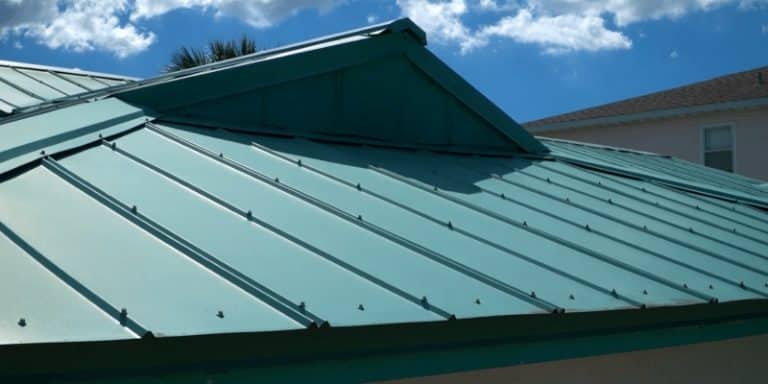
How panels attach: Panels must be drilled through the roofing material, and these penetrations cannot be flashed like on shingle roofs.
Considerations: Exposed screws can loosen over time, and structural upgrades are often required before installation.
MSS installs: Case by case, depending on condition and structure.
3. Metal Shingle Roofs
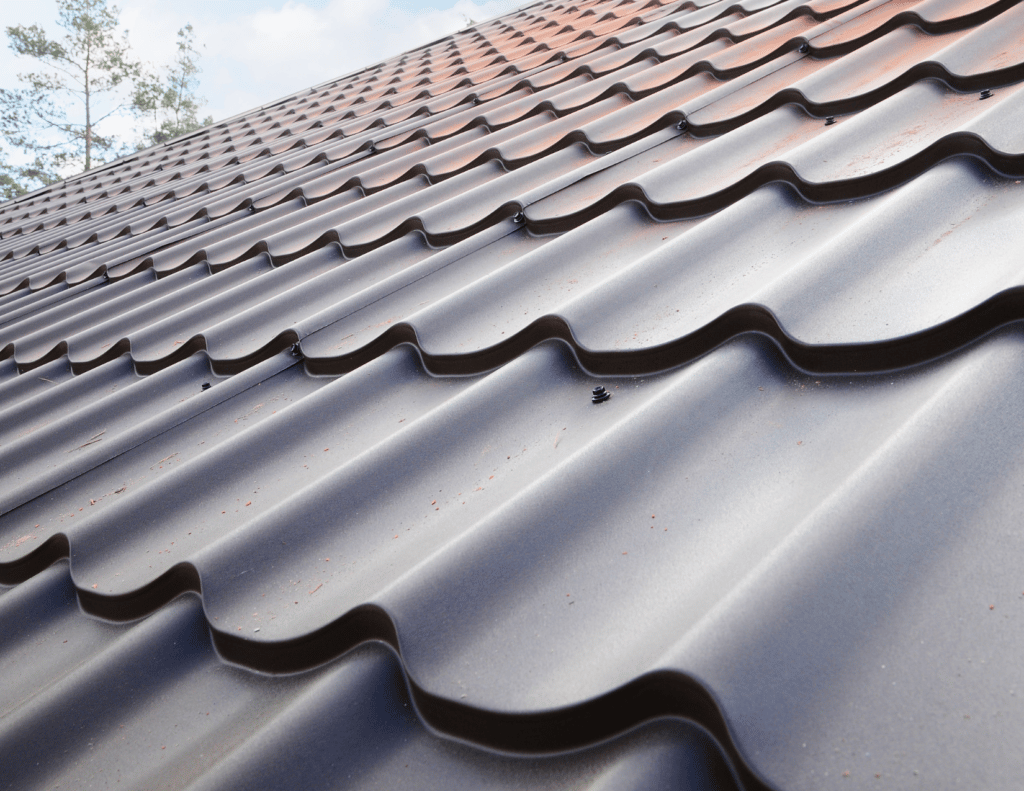
How panels attach: Not recommended due to the difficulty in securing panels and waterproofing.
MSS installs: No—we do not install solar on metal shingle roofs.
How Do I Tell the Difference Between Metal Roof Types?
Metal shingle roofs are not very common in Maine, but they are easy to identify because they mimic the look of traditional asphalt shingles. The real challenge is telling apart standing seam and exposed fastener (corrugated) metal roofs, since both are made from large metal sheets with vertical seams and can come in a variety of colors and finishes.
Here’s the simplest way to tell them apart:
- Exposed fastener roofs: You’ll see visible screws or fasteners on the face of the roof panels.
- Standing seam roofs: No screws are visible. The fasteners are hidden under the raised seams.
If you’re still unsure, our team can confirm your roof type during your free solar site assessment.
Flat Rubber or Concrete Roof
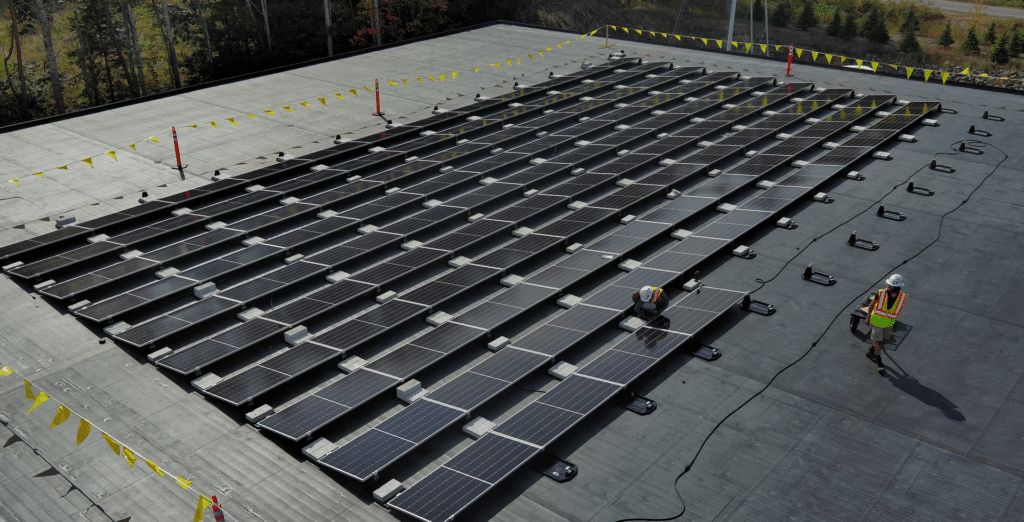
Flat rubber and concrete roofs are less common in Maine, but are typical on multi-family units and commercial buildings.
Installation:
- Tilted racking systems are used to angle panels for maximum sun exposure.
- Ballasted racking systems use weights to hold panels in place, minimizing penetrations.
Because suitability depends on load capacity and design, a professional site visit is necessary; however, we do install on many of these roof types.
Do I Have Other Options Besides My Roof?
Yes. If your main roof isn’t suitable, you still have alternatives our team can install on:
- Outbuildings: Such as garages, barns, and sheds, often make excellent solar hosts.
- Ground-mounted solar: An option for properties with open land.
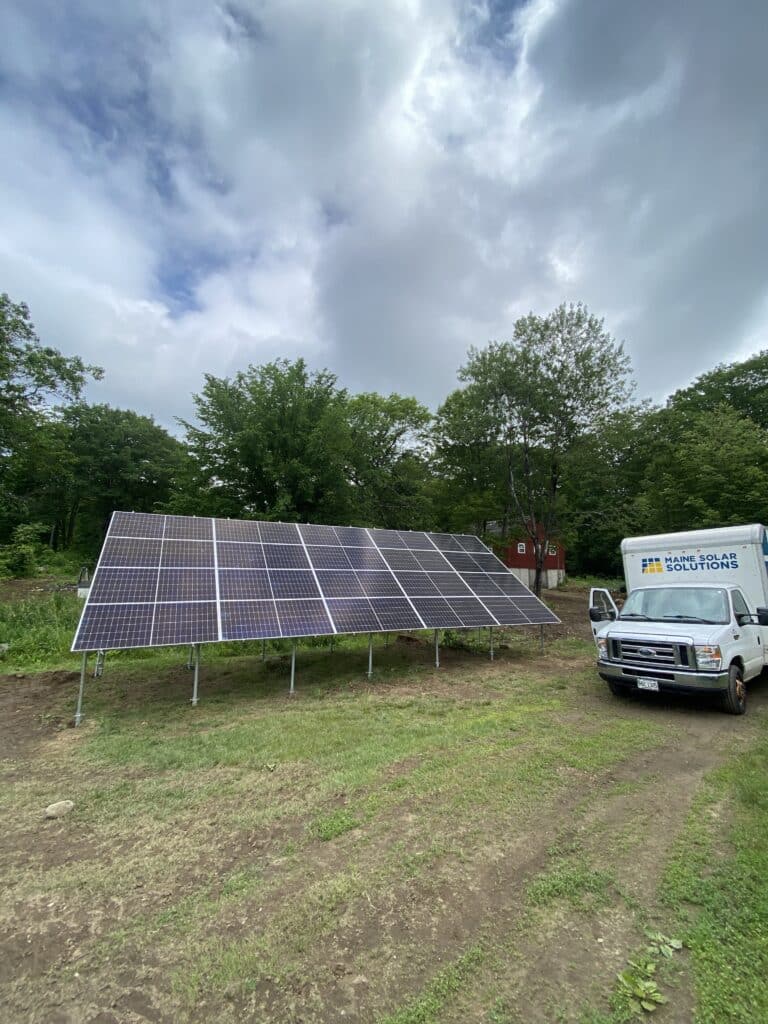
Ground-mounted arrays:
- Costs 15–30% more than rooftop systems due to the need for a supporting structure & trenching.
- It can be oriented at the optimal tilt and angle for maximum production.
- Often outperform rooftop systems that are shaded or poorly oriented.
Our team can provide side-by-side pricing and performance comparisons to help you make the best decision for your property.
Maine Solar Solutions Is Here To Help
As part of every site survey, Maine Solar Solutions evaluates the condition of your roof. If replacement is needed, we can connect you with trusted roofing contractors. While re-roofing is an expense, pairing it with solar often makes financial sense—your long-term energy savings help offset the cost, and you avoid future panel removal fees.
Take the Next Step
Maine Solar Solutions has helped thousands of Mainers install solar, and we’re here to guide you through the process.
Ready to see if your roof is right for solar?
Schedule a free solar assessment today.

